- Home
- Linda Castillo
After the Storm
After the Storm Read online
Begin Reading
Table of Contents
About the Author
Copyright Page
Thank you for buying this
St. Martin’s Press ebook.
To receive special offers, bonus content,
and info on new releases and other great reads,
sign up for our newsletters.
Or visit us online at
us.macmillan.com/newslettersignup
For email updates on the author, click here.
The author and publisher have provided this e-book to you for your personal use only. You may not make this e-book publicly available in any way. Copyright infringement is against the law. If you believe the copy of this e-book you are reading infringes on the author’s copyright, please notify the publisher at: us.macmillanusa.com/piracy.
This book is dedicated to the first responders: Police officers. Firefighters. Emergency medical personnel. Disaster relief workers and volunteers. Thank you for everything you do and for being there when you are needed most.
ACKNOWLEDGMENTS
Once again, my deepest appreciation and heartfelt thanks to my publishing family at Minotaur Books. Charles Spicer. Sally Richardson. Andrew Martin. Jennifer Enderlin. Sarah Melnyk. Jeanne-Marie Hudson. Kerry Nordling. Hector DeJean. April Osborn. David Rotstein. And many thanks to my friend and agent, Nancy Yost. I sincerely love working with all of you!
Seek, and ye shall find; knock, and it shall be opened unto you.
—The Holy Bible, King James version, New Testament, Matthew 7:7
PROLOGUE
August 29, 1985
The old barn had a history. Nine-year-old Sally Ferman had heard all of the stories, and every single one scared her. Her dad told her that the farm was originally owned by a young German immigrant by the name of Hans Schneider. He built a cabin and married a French woman, Rebecca. They had three sons, and over the years, Hans and his boys built the barn, raised cattle and sheep, and grew tobacco and corn.
Then one snowy night in 1763, a band of Delaware Indians raided the settlement. Hans was shot dead as he stood by the window with his muzzle-loader. His wife was dragged from the cabin and scalped. The three boys—all armed and prepared to fight to the death—were burned alive when the Delaware set the cabin ablaze. Rumor had it, if you came out here at night you could still hear Rebecca screaming as her scalp was being hacked from her skull.
Sally didn’t know if the story was true; she’d never heard anything out here except for the coo of the pigeons and the occasional squeal of the hogs. The one thing she did know was that the old barn, with its stone foundation and dark windows, was the creepiest place she’d ever seen.
From her house next door, it looked like a normal barn, with faded red paint and a rusty tin roof. But up close, the place was falling down and spooky. Grass and weeds grew shoulder-high at the crumbling foundation. Last summer she and her best friend, Lola, had sneaked over. They’d nearly talked themselves into going into the barn, when the Amish guy came out and they’d had to hide in the weeds. It had been scary but exciting, too. All he did was pee out the back door. Despite their momentary terror, they’d laughed all the way home. Sally had had a tough time explaining the cockleburs in her hair to her mom.
The memory made her sigh. Lola had been so much fun. She’d moved away last Christmas because of her dad’s stupid job. Sally missed her bunches. Lately, she’d been hanging with Fayrene Ehrlich, who’d just moved to Painters Mill from Columbus. Fayrene was pretty and popular (her mom let her wear lipstick and shave her legs), and she’d already scored a place on the softball team and the girls’ glee club, two things Sally hadn’t managed, and not for lack of trying. Everyone thought Fayrene was the best thing to hit Painters Mill since the new ball diamond out by the middle school. Sally thought Fayrene was a bigmouth and a know-it-all. And she knew for a fact Fayrene wasn’t that smart, because she’d copied Sally’s homework twice already.
But with Lola gone, Fayrene was the only friend she had. The truth of the matter was Sally needed to up her game. Prove her courage and her worthiness for fifth grade. Her mom had told her to stay away from the Amish people next door; they didn’t want English kids sneaking around in their barn. But that was exactly the thing Sally needed to do to show everyone she was a lot braver and twice as interesting as Fayrene Ehrlich. All she had to do was come back with a cool story for the lunchroom and maybe with a souvenir to prove she’d done it.
“Easy peasy,” she whispered as she made her way up the rise from the creek. In the back of her mind she wondered what Fayrene would do if Sally came back with Rebecca Schneider’s scalp. That would shut her up for good.
Making sure the coast was clear, she darted across the dirt path to the barn. It was built on a slope, with the front on the uphill side. The downhill side faced the pasture, and there were stalls tucked underneath and a bunch of hogpens outside. There was a big sliding door in front, where the Amish people backed up their wagon to unload hay. But Sally couldn’t go in that way because she’d be visible from the house. There was no side door, so she was going to have to go in through the stalls in the back.
Keeping an eye out for someone approaching from the front, listening for voices, she sidled right. She could smell the pigs now, that nose-burning ammonia stench her mom and dad complained about every time the breeze carried it over to their house. Back pressed against the foundation, Sally peered around the corner. The row of stalls on the underside of the barn had dirt floors, and a foot or so of manure was built up at the rear. There were holes where groundhogs had dug burrows. Those things creeped her out, too, especially the big ones. Her mom said they looked like giant rats.
Not giving herself time to chicken out, Sally slipped around the corner and looked up. The barn was two stories high, three if you counted the stalls underneath. There was only one way to get up to the second level: through the hay chutes cut into the ceilings of the ground-level stalls. All she had to do was shove one of the hatches aside and climb up.
Taking a final look around, she ducked into the first stall and, keeping an eye out for groundhogs, made her way to the rear. The ceiling was low with cobwebs hanging down like dirty cotton candy. She could hear the pigs grunting and moving around in the pens outside, their cloven hooves tapping like heels against the concrete. She reached the nearest hay chute. A quick check for spiders, and she pushed on the heavy wooden hatch with both hands. Dust and dirt and bits of hay floated down to land on her face and shoulders, but she muscled the hatch aside and, standing on her tiptoes, poked her head through the opening.
The barn’s interior stunk badly. There was just enough light for her to make out the pile of loose hay ahead, a lone bale of alfalfa, and some burlap bags full of cracked corn stacked against the wall. Heaving herself through the chute, Sally got to her feet, dusted off her jeans, and looked around. The door that looked out over the pigpens was to her right. To her left was the big sliding door at the front of the barn. There was a flatbed wagon parked just inside. Farther, a window looked out toward the house. She couldn’t believe she’d come this way all by herself. All she had to do now was find some sort of souvenir and then get the heck out.
Her sneakers were silent against the plank floor as she started toward the door that looked out over the pasture and the hogpens below. She caught a whiff of horse sweat and leather as she passed by a harness hung on a nail driven into a beam. Rounding a wheelbarrow full of horse poop and straw, she reached the door and peered out. From where she stood, she could see the mossy green water of the pond and, beyond, the creek. Twelve feet down, dozens of pigs—Hampshire hogs and big red ones with black spots—milled about, packed together by steel pipe fencing. A few of the animals looked up at her, beady eyes
beseeching, and she looked around for some hay or corn to toss down.
“I bet you guys are hungry,” she whispered.
She was tugging a tuft of alfalfa from a bale, when the sound of voices spun her around. The big sliding door began to roll open. Gasping, she darted to the hatch, sat down, and stuck her feet through. She was in the process of dropping down, when some men entered the barn. Sally landed on her feet. Quickly, she stood on her tiptoes and poked her head back through the chute, grabbed the hatch, and dragged it back into place, ducking down as she lowered it over the hole.
But she didn’t close it completely. Resting the hatch on top of her head, she peered through the two-inch gap. She couldn’t see much, just three sets of legs, men’s work boots, and trousers.
“Sis alles eigericht,” one of the men said.
Heart drumming with a combination of excitement and fear, she crouched, keeping the hatch open as far as she dared. If they looked her way, they might spot her. But Sally didn’t think they would, because they were busy talking. Or arguing.
She was about to close the hatch and make a run for home, when the shouting began. She didn’t know Pennsylvania Dutch and she couldn’t see their faces, but she didn’t need either of those things to know they were angry. Her mom had always told her Amish people were religious and gentle, never partaking in any kind of violence. But there was nothing gentle about the conversation they were having. She almost couldn’t believe it when one of the men shoved the other one.
She nearly yelped when they shuffled to within a few feet of her hiding place, boots scraping against the floor, kicking up dust. She heard the wet-meat slap of a fist against flesh. An angry shout. More scuffling as they struggled and danced back to the door. Growling like an animal, one of the men bent and charged the man near the door. Sally saw booted feet leave the floor as the man by the door reeled backward. Then he was falling. He twisted in midair and seemed to look right at her. She caught a glimpse of his face, arms outstretched, mouth open in a silent scream. And then he was gone.
A whimper escaped her when she heard his body clang against the fence and land on the concrete below. Slapping her hand against her mouth, she ducked down so fast she lost her balance. The hatch clattered shut.
Sally landed on her butt in the dirt. She couldn’t believe what she’d just seen. “Ohmigod,” she whispered. “Ohmigod. Ohmigod.”
Was the man dead?
Above her, the men had gone silent. Had they seen her?
She darted to the front of the stall and glanced left toward the hogpen. Through the steel rails and a mass of hogs, she spotted the man lying on the concrete. He was moving, head raised, dazed, but looking around. Relief swept through her because she’d thought for sure he was dead.
Her relief was short-lived. The hogs were squealing and running around. Several of the larger animals surrounded the fallen man. Squealing, one of the pigs darted in and rooted the man with its snout. The man shouted something and smacked the animal with his fist.
“Help him,” she whispered, looking toward the ceiling where the men standing above could surely see him. Why weren’t they helping him?
Sally got a sick feeling in her stomach. A big white boar bellowed, rushed in, and slashed at him with its tusks. The man made an awful sound. She saw a tear on his shirt sleeve. The shocking red of blood. Her teeth began to chatter.
She closed her eyes. “Help him,” she whimpered. “Please.”
The pitch of the hogs changed. Sally opened her eyes. The animals were excited and moving fast, darting close and then retreating. She watched in horror as a big sow latched on to the man’s shoulder and shook violently, the way a dog might shake a squirrel. The man twisted and tried to roll away, but a second pig lunged and bit down on his arm. Sally covered her face with her hands, but it didn’t block the sound of the scream that followed.
“Ohmigod! Ohmigod!” Choking back sobs, she ran from the barn. She knew if the men looked they would see her, but she didn’t care. She didn’t slow down. Didn’t look back. She reached the fence, squeezed between the wires, tearing her shirt on a barb, cutting her arm. But she felt no pain. Then she was on the path, sneakers pounding dirt. Arms pumping. Legs burning. Terror in hot pursuit.
Her own screams chased her all the way home.
August 30, 1985
She arrived at the covered bridge twenty minutes early. She hadn’t told a soul where she was going, and she was so nervous she felt as if she might crawl right out of her skin. But she was excited, too, and glad they’d chosen this place to meet. The Tuscarawas Bridge was special. They’d met here dozens of times over the summer. It was a place of first kisses, whispered promises, the laughter of young lovers, and dreams for the future. Or, if you were alone, it was the kind of place you could just sit and think.
This afternoon was so quiet she could hear the red-winged blackbirds swooping from tree to tree down by the deep pool, and the bees buzzing around the yellow tops of the goldenrod that grew along the muddy bank of Painters Creek. Hefting her satchel, she entered the shade of the covered bridge where it was marginally cooler. She’d worn her best dress today and the black kapp normally reserved for preaching services every other Sunday. Gathering the skirt of her dress, she sat down beneath the window that looked out over the meandering creek. It was so peaceful. She wished for that same peace in her own heart, but it was not to be.
She’d never experienced so many conflicting emotions as she had this past week. The thought of starting a new life with him made her so happy she could barely contain it. Yet the thought of leaving her family behind filled her with sadness. Oh, how she would miss Mamm and Datt and the little ones! How would she get through the day without the love and wisdom of her parents? How could she go to sleep at night without the hugs and kisses of her brother and sisters? Did they know how much she loved them? Would they always remember her?
The alternative, of course, was living the rest of her life without the man she loved—the man she was going to marry—and that wasn’t an option. It didn’t matter that he was Mennischt—Mennonite—and New Order, to boot. He was a good man, kind and hardworking. Most important, he loved her. He wanted to marry her. What did it matter that he loved God in a slightly different way or that his belief system included modern conveniences and driving a car?
It mattered to her parents. She’d tried to explain to them that he would be a good husband. That he would work hard and provide for her and their children. But they were Swartzentruber, the most conservative of all the Amish groups. Her parents were demutig, meaning “low” or “humble,” and they adhered to the strict traditionalism of their forefathers. They drove windowless buggies with steel-clad wooden wheels. Not only did they spurn electricity, but their home was devoid of indoor plumbing and even linoleum flooring. Her mamm wore a bonnet and a dress that reached nearly to her ankles. Her datt never trimmed his beard.
Her parents believed those values promised them a place in heaven. But she knew those staunch values also meant they would never listen to her. They would never understand. And they would never, ever approve. In the end, they’d left her no choice but to choose. Her family—her very Amishness—or a future with the man she loved more than her own existence.
They’d met most recently two days ago at this very spot. She’d laughed when he’d gotten down on one knee and proposed. Rings aren’t exchanged when an Amish couple becomes engaged, but she’d felt like a princess when he told her he’d put one on layaway—a real diamond set into a simple gold band—and he’d be picking it up when he got paid. Her joy was dampened only when she reminded him that her parents would never give their blessing. She was only seventeen years old, but she’d already been baptized. She would be put under the bann. Excommunicated. No one would speak to her. No one would take meals with her. Worst of all, they would forbid her to see her brother and sisters. How the thought hurt her heart!
Last night, after everyone went to bed, she’d pulled out her satchel and packed
. Underwear. Socks. A change of clothes. A bar of her mamm’s lye soap. A copy of Martyrs Mirror. She didn’t have room for the nearly twelve-hundred-page book, but it was the one item she couldn’t live without. No matter how troubled her soul, the old tome, with its accounts of the Anabaptists who’d died for their faith, both horrified and inspired her to love God even more. In the coming days, she was going to need every ounce of strength and faith she could muster.
This morning, after Datt left, she sneaked into the bedrooms of her brother and sisters for final kisses, her tears leaving their soft cheeks nearly as wet as hers. “I love you little ones,” she’d whispered. “Be good.” She’d hoped that in a few weeks or months, her parents would realize how much they missed her and welcome her back. But she didn’t think so, and that made her cry even harder because deep inside she knew she’d never see them again.
It took her two hours to walk to the covered bridge. She’d broken a sweat every time a car or buggy passed. She was terrified someone she knew would see her and tell her parents. Of course, it didn’t matter really. They would find out soon enough. Even if they tried to stop her, she wouldn’t change her mind. Nothing could stop her now. Nothing.
Slipping off her shoes, she strolled over to the place where he’d carved their initials into the wood. It was a silly thing, but the sight of it made her cry again. Finally, after months of sneaking around and fearing exposure, they’d be together, only now as husband and wife. There would be a wedding. A home. Children. Her chest swelled with love, and not for the first time she asked God how something so right and pure and good could be bad.
Finally, emotionally spent, she went back to her satchel and sat down. He was late, as usual, and she couldn’t wait to see him. She could picture his face. So handsome. Such kind eyes. The secret smile he had only for her. He’d be here any moment in that old car of his, elbow out the window, radio blaring, hair blowing in the wind. All she had to do was sit and wait. She figured she could wait forever if that’s what it took.

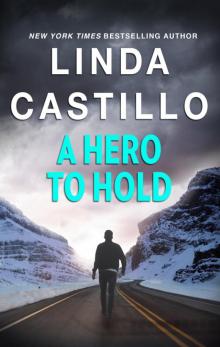 A Hero to Hold
A Hero to Hold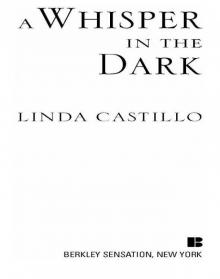 A Whisper in the Dark
A Whisper in the Dark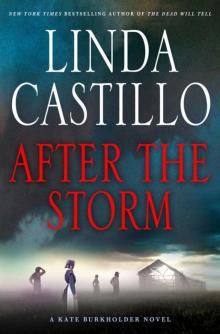 After the Storm
After the Storm A Baby Before Dawn
A Baby Before Dawn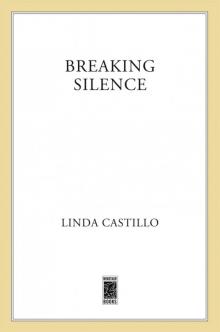 Breaking Silence
Breaking Silence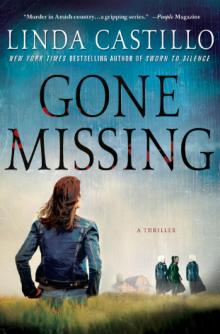 Gone Missing
Gone Missing Long Lost
Long Lost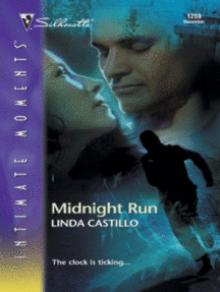 Midnight Run
Midnight Run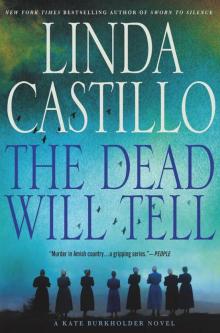 The Dead Will Tell
The Dead Will Tell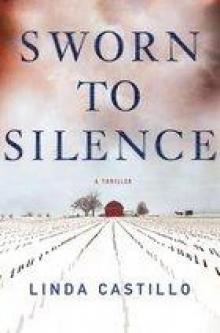 Sworn to Silence
Sworn to Silence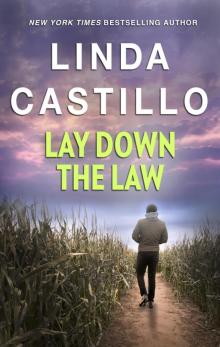 Lay Down the Law
Lay Down the Law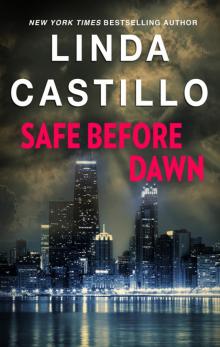 Safe Before Dawn
Safe Before Dawn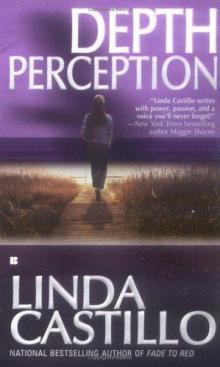 Depth Perception
Depth Perception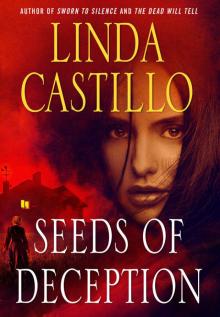 Seeds of Deception
Seeds of Deception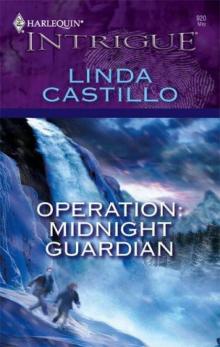 Operation: Midnight Guardian
Operation: Midnight Guardian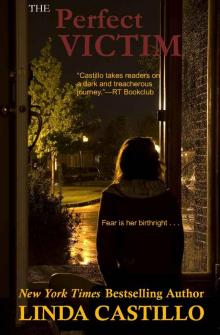 The Perfect Victim
The Perfect Victim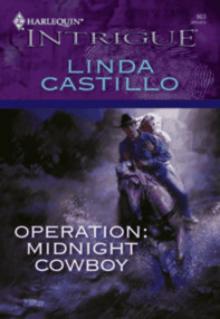 Operation: Midnight Tango
Operation: Midnight Tango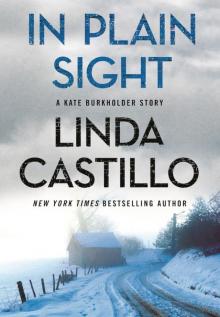 In Plain Sight (Kate Burkholder)
In Plain Sight (Kate Burkholder)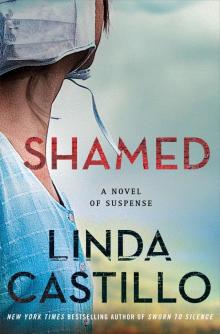 Shamed
Shamed Fallen
Fallen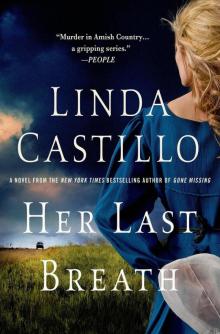 Her Last Breath
Her Last Breath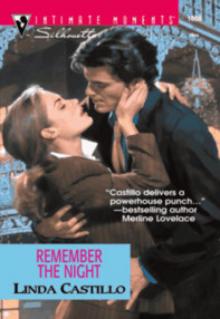 Remember the Night (Men in Blue)
Remember the Night (Men in Blue) Dead Reckoning
Dead Reckoning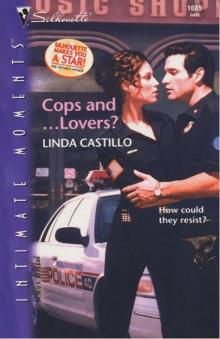 Cops and ... Lovers?
Cops and ... Lovers? The Pact
The Pact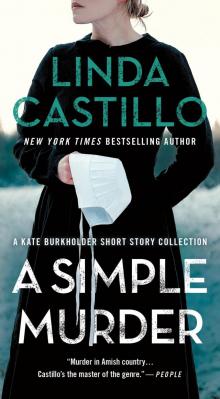 A Simple Murder
A Simple Murder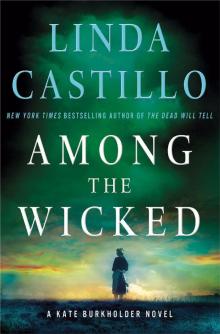 Among the Wicked
Among the Wicked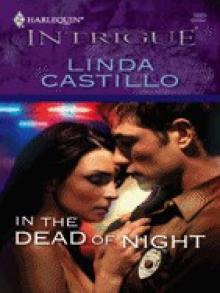 In the Dead of Night
In the Dead of Night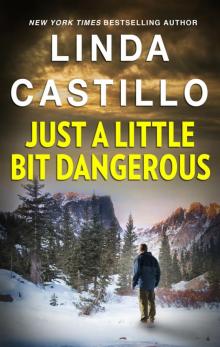 Just a Little Bit Dangerous
Just a Little Bit Dangerous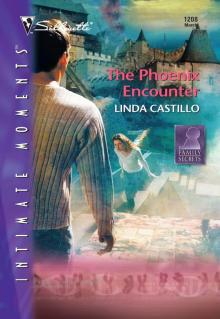 The Phoenix Encounter
The Phoenix Encounter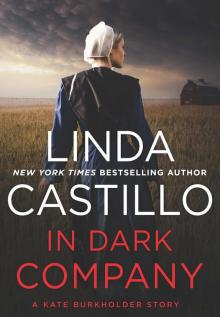 In Dark Company
In Dark Company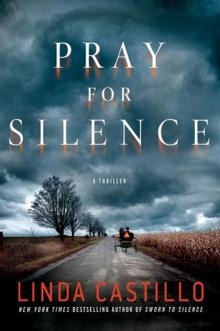 Pray for Silence
Pray for Silence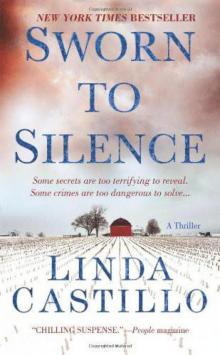 Kate Burkholder 01-Sworn to Silence
Kate Burkholder 01-Sworn to Silence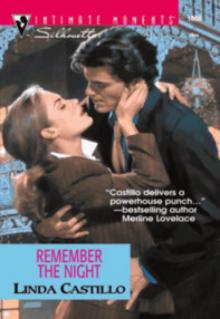 Remember the Night
Remember the Night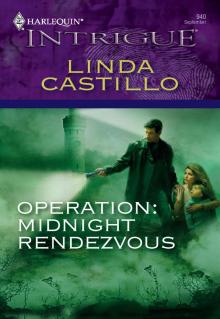 Operation: Midnight Rendezvous
Operation: Midnight Rendezvous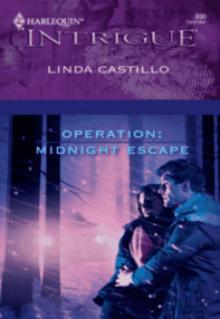 Operation: Midnight Escape
Operation: Midnight Escape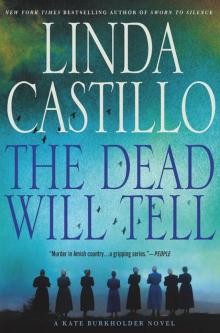 The Dead Will Tell: A Kate Burkholder Novel
The Dead Will Tell: A Kate Burkholder Novel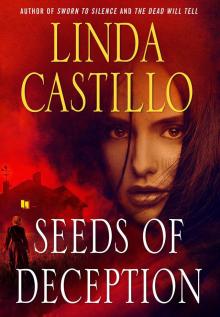 Seeds of Deception: A Kate Burkholder Short Story
Seeds of Deception: A Kate Burkholder Short Story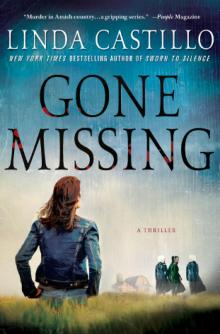 Gone Missing (Kate Burkholder 4) kb-4
Gone Missing (Kate Burkholder 4) kb-4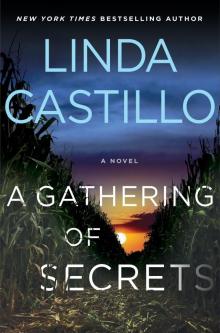 A Gathering of Secrets
A Gathering of Secrets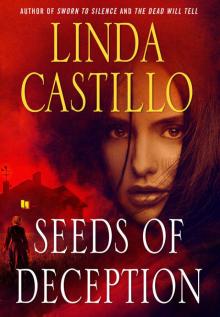 Seeds of Deception: A Kate Burkholder Short Story (Kindle Single)
Seeds of Deception: A Kate Burkholder Short Story (Kindle Single)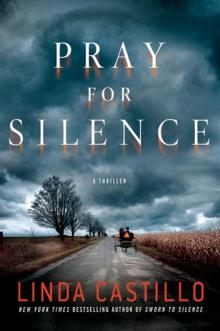 Pray for Silence kb-2
Pray for Silence kb-2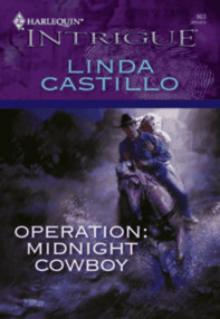 Operation: Midnight Cowboy
Operation: Midnight Cowboy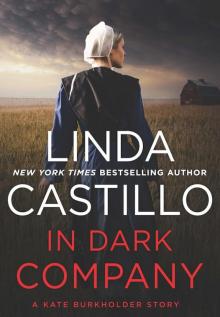 In Dark Company_A Kate Burkholder Short Mystery
In Dark Company_A Kate Burkholder Short Mystery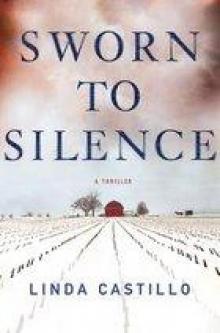 Sworn to Silence kb-1
Sworn to Silence kb-1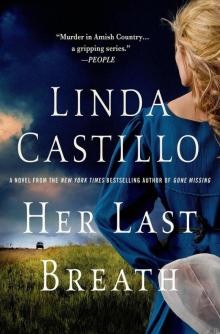 Her Last Breath: A Kate Burkholder Novel
Her Last Breath: A Kate Burkholder Novel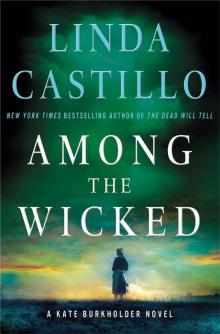 Among the Wicked: A Kate Burkholder Novel
Among the Wicked: A Kate Burkholder Novel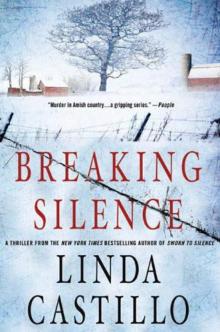 Breaking Silence kb-3
Breaking Silence kb-3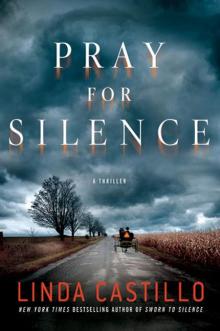 Kate Burkholder 2 - Pray for Silence
Kate Burkholder 2 - Pray for Silence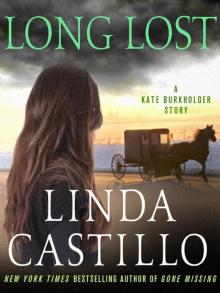 Long Lost: A Kate Burkholder Short Story
Long Lost: A Kate Burkholder Short Story